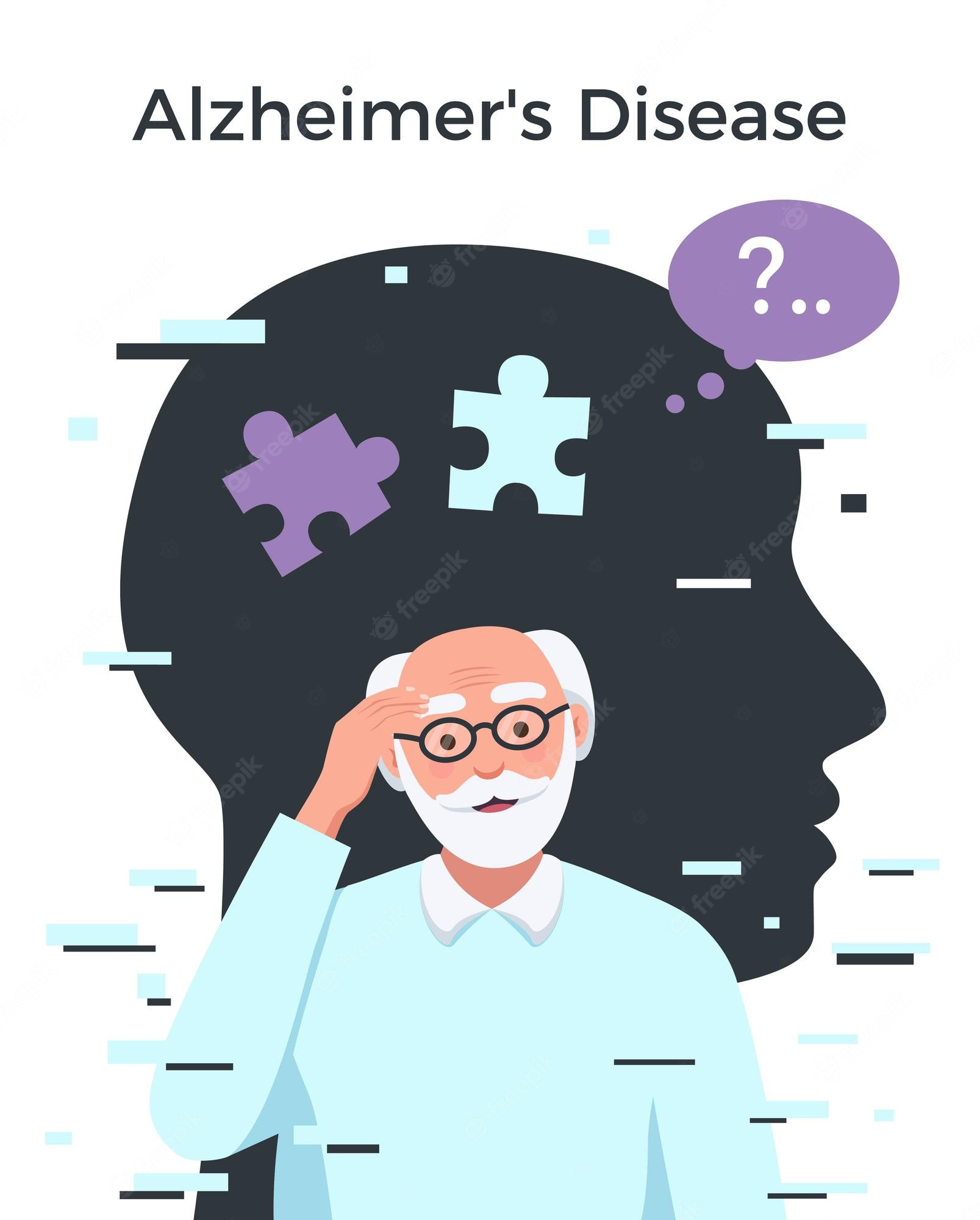Definisi
Demensia vaskular adalah jenis demensia yang disebabkan oleh masalah aliran darah ke otak. Otak membutuhkan asupan oksigen yang dibawa oleh aliran darah yang lancar agar dapat bekerja dengan baik. Salah satu fungsi otak adalah sebagai pusat memori dan pengambilan keputusan, sehingga bila ada sumbatan pada aliran darah tersebut maka dapat memengaruhi kondisi berpikir. Demensia vaskular dapat berkembang setelah adanya stroke, tetapi bukan berarti semua kasus stroke dapat menyebabkan demensia vaskular.
Demensia umumnya terjadi pada usia di atas 65 tahun, dan bila sudah terjadi, maka tidak dapat sembuh total. Namun, banyak cara dapat dilakukan untuk mencegah dan memperlambat proses tersebut. Demensia vaskular merupakan penyakit jenis demensia kedua yang paling sering dialami setelah demensia alzheimer.
Kategori dari demensia vaskular yang dapat terjadi ialah sebagai berikut:
- Demensia campuran: Jenis demensia ini terjadi bila demensia vaskular muncul bersamaan dengan penyakit alzheimer.
- Demensia multi infark: Jenis demensia ini terjadi setelah sumbatan kecil, berulang, dan biasanya tidak terdeteksi muncul di aliran darah ke bagian otak tertentu. Jenis demensia ini juga dapat disebut dengan gangguan kognitif vaskular.
Penyebab
Demensia vaskular dapat muncul akibat beberapa kondisi yang memengaruhi aliran darah di pembuluh darah otak, menyebabkan berkurangnya suplai aliran darah yang kaya akan nutrisi dan oksigen agar otak melakukan fungsinya secara optimal.
Beberapa kondisi di bawah ini dapat menyebabkan kondisi demensia vaskular, yakni:
- Stroke: Jenis stroke iskemik terutama dapat menyebabkan demensia vaskular.
- Perdarahan Otak: Perdarahan otak dapat disebabkan akibat naiknya tekanan darah tinggi sehingga pembuluh darah lebih mudah pecah dan menyebabkan terjadinya perdarahan pada otak.
- Pembuluh darah yang menyempit atau rusak kronis: Kondisi yang mempersempit atau menimbulkan kerusakan jangka panjang pada pembuluh darah otak Anda dapat menyebabkan demensia vaskular. Kondisi ini biasanya terkait dengan proses penuaan, hipertensi, dan diabetes.
Faktor risiko
Berikut merupakan faktor risiko yang meningkatkan terjadinya demensia vaskular, antara lain:
- Pertambahan usia: Risiko terkena demensia vaskular bertambah seiring pertambahan usia, biasanya jarang terjadi pada usia dibawah 65 tahun.
- Riwayat serangan jantung, stroke, dan transient ischemic attack: Bila sebelumnya Anda memiliki riwayat serangan jantung, stroke, dan transcient ischemic attack (TIA), maka hal tersebut dapat memengaruhi kondisi pembuluh darah di otak.
- Penuaan pembuluh darah yang tidak normal (aterosklerosis): Kondisi ini muncul ketika terjadinya penumpukan plak lemak pada pembuluh darah yang menyebabkan penyempitan pembuluh darah. Aterosklerosis meningkatkan risiko demensia vaskular dengan mempersempit diameter pembuluh darah di otak.
- Kolesterol tinggi: Peningkatan kadar kolesterol atau lemak jenuh, biasa disebut juga dengan LDL memiliki risiko dengan kejadian demensia vaskular.
- Tekanan darah tinggi: Tekanan darah tinggi menyebabkan pembuluh darah menjadi mudah pecah dan terjadi perdarahan otak sehingga dapat menyebabkan demensia vaskuler.
- Diabetes: Secara umum, penyakit diabetes memengaruhi proses penuaan pada pembuluh darah di seluruh tubuh, termasuk di otak.
- Merokok: Merokok dapat menyebabkan aterosklerosis, sehingga secara tidak langsung dapat meningkatkan faktor risiko demensia vaskular.
- Obesitas: Penumpukan lemak pada pasien obesitas berhubungan dengan peningkatan lemak dalam tubuh, termasuk pada pembuluh darah yang dapat menyebabkan aterosklerosis, sehingga dapat meningkatkan risiko terkena demensia vaskular.
- Atrial fibrilasi: Atrial fibrilasi adalah kondisi ketika gelombang jantung tidak beraturan, sehingga meningkatkan risiko pembentukan gumpalan darah yang dapat tersalurkan dari jantung menuju pembuluh darah otak. Bila gumpalan darah ini tidak tertangani, maka dapat menjadi sumbatan di pembuluh darah otak dan menyebabkan demensia vaskular.
Gejala
Gejala dari demensia vaskular meliputi:
- Kebingungan
- Sulit berkonsentrasi
- Sulit untuk merencanakan sesuatu
- Tidak mampu untuk melakukan analisa, mengembangkan rencana, dan mengkomunikasikan rencana tersebut ke orang lain
- Keterbatasan dalam berpikir
- Sulit untuk memutuskan rencana selanjutnya
- Permasalahan dalam memori atau mengingat sesuatu
- Gelisah
- Gangguan tidur
- Cara jalan yang tidak stabil
- Kesulitan mengontrol buang air kecil
- Depresi dan tidak peduli dengan keadaan sekitarnya
Diagnosis
Dokter akan melakukan wawancara terhadap pasien, pemeriksaan fisik, dan pemeriksaan penunjang. Setelah melakukan pemeriksaan fisik, dokter akan melakukan pemeriksaan saraf seperti pemeriksaan keseimbangan, pemeriksaan fungsi gerak, dan pemeriksaan fungsi sensorik. Selain itu, dokter akan menilai kemampuan berpikir pasien dengan menggunakan kuesioner bernama Mini Mental State Examination (MMSE).
Dokter akan memberikan instruksi kepada pasien untuk melakukan beberapa aktivitas sehari-hari, misalnya mengangkat tangan, mengulang beberapa kata, berhitung, dan menulis. Kemampuan berpikir pasien akan dilihat dalam pemeriksaan ini dan dinilai apakah hasil pemeriksaan pasien mengarah ke demensia atau tidak.
Sedangkan untuk pemeriksaan penunjang yang dapat dilakukan dokter adalah pemeriksaan laboratorium darah, untuk melihat adanya penyakit lain yang mempengaruhi kondisi pasien, dan dengan teknologi CT Scan atau MRI untuk melihat kondisi otak dan pembuluh darah pasien.
Tata Laksana
Tata laksana demensia vaskular berfokus untuk mengurangi keparahan penurunan kemampuan berpikir di masa depan, pengobatan bergantung dengan kondisi yang menyebabkan terjadinya demensia vaskular. Tata laksana yang dapat dilakukan meliputi:
- Pemberian obat-obatan untuk menurunkan tekanan darah tinggi, menurunkan kadar kolesterol, mencegah terbentuknya gumpalan darah, dan mengontrol kadar gula darah dalam tubuh.
- Perubahan gaya hidup seperti meningkatkan frekuensi aktivitas fisik, konsumsi makanan gizi seimbang, menghindari paparan asap rokok baik aktif maupun pasif, dan menghindari konsumsi alkohol.
- Program penurunan berat badan bila Anda obesitas.
- Tindakan untuk memperbaiki aliran darah otak.
Komplikasi
Komplikasi yang memungkinkan dari demensia vaskular antara lain:
- Stroke
- Penyakit jantung
- Kehilangan kemampuan untuk bersosialisasi dan berinteraksi dengan orang lain
- Risiko terkena penyakit infeksi seperti infeksi paru, infeksi saluran kemih, dan infeksi kulit
Pencegahan
Pencegahan demensia dapat dilakukan dengan melakukan gaya hidup sehat. Gaya hidup sehat yang direkomendasikan adalah dengan melakukan aktivitas fisik rutin sejak muda, dengan melakukan aktivitas fisik intensitas sedang 150 menit per minggu dan aktivitas fisik intensitas berat sebanyak 75 menit per minggu. Selain itu, Anda juga dapat menghindari obesitas dengan menjaga pola makan gizi seimbang, perbanyak asupan protein, dan kurangi asupan gula serta garam yang berlebihan.
Anda juga dapat mencukupi kebutuhan air putih, dan menghindari rokok serta alkohol. Bila Anda memang mengalami penyakit seperti tekanan darah tinggi, kadar kolesterol tinggi, dan diabetes, wajib bagi Anda untuk mengontrol kadar tekanan darah, kolesterol, dan gula darah. Perbanyak juga untuk mengikuti aktivitas dan komunitas sosial untuk memperbanyak interaksi dengan lingkungan sekitar.
Kapan Harus ke Dokter?
Segeralah ke dokter bila Anda mengalami penurunan kesadaran, kebingungan, tidak mampu untuk melakukan aktivitas sehari-hari. Anda dapat berobat ke instalasi gawat darurat atau ke dokter spesialis saraf.
Mau tahu informasi seputar penyakit lainnya? Cek di sini, ya!
- dr Ayu Munawaroh, MKK
Mayo Clinic - Vascular Dementia. (2021). Retrieved 6 September 2022, from https://www.mayoclinic.org/diseases-conditions/vascular-dementia/diagnosis-treatment/drc-20378798
John Hopkins Medicine - Vascular Dementia. (2021). Retrieved 6 September 2022, from https://www.hopkinsmedicine.org/health/conditions-and-diseases/dementia/vascular-dementia
National Healthcare Services. (2020). Retrieved 6 September 2022, from https://www.nhs.uk/conditions/vascular-dementia/
WebMD - Vascular Dementia. (2021). Retrieved 6 September 2022, from https://www.webmd.com/stroke/guide/vascular-dementia#091e9c5e80599643-2-6












